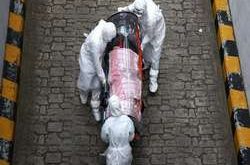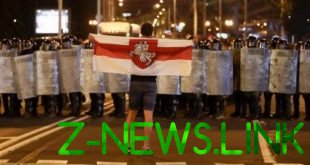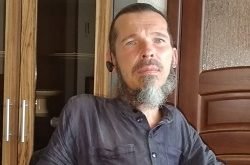
As over 15 years of local government in Russia was turned into a decorative institution, controlled by the center.
Zakolachivaya the nails in the coffin of local government, the government is killing the culture of representation and forms generation for whom democratic values lose importance, experts say.
“In the 15 years since the adoption of the 131-FZ we have gone from self-selection of population of local governments as enshrined in the Constitution, until its dismissal in favor of state power,” — said Professor at the Higher school of public administration, Ranepa, President of the European club of experts of local self-government Emil markvart.
The first Wake-up call, according to the expert, already sounded in the adoption 131-FZ. Then, in 2003, the law has introduced regulations providing for “douglasie” — when along with the head of the municipality, who is elected from among the deputies, appointed by the head of the local administration through competition. Then to the competition Commission, which was engaged in selection of candidates, included representatives of the regional authorities. This rule at some point became the subject of consideration by the constitutional court, which said then that, of course, not good when the state is involved in the selection of officials of local self-government, but officials are only one-third of the Commission, they do not have a decisive majority so that you can live with that.
“Then the actors tried to achieve cancellation of elections of mayors of capital cities. Most actively this policy was carried out in 2006-2007. Then managed to defend direct elections. But the government has changed tactics and all efforts on the administrative and political pressure on local government to the hands of municipalities to abolish direct elections of heads of municipal formations”, — expressed the opinion of marquart.
In 2008, Russia has suddenly become a popular model dvuglavyj. And a year later was introduced the removal of heads selected by the members. The procedure could initiate including regional authorities, and often used. “It would seem, directly with the order of formation of bodies of local self-government, this solution is not connected. But it was the element of intimidation of elected heads of municipalities. The first year of enforcement of this provision showed that the head, even elected by the people in direct elections, the figure is very unstable, which if desired can be changed or replaced. A year and a half it ceased to apply, because everything is already understood — resistance is futile,” — said marquart.
All of this was nothing compared to what happened in 2014, he said. “Took 136-FZ, which, it is my personal opinion, and hammered the last nail in the coffin of local government, completely depriving him of independence. The authority to establish the structure of local governments and the procedure of their formation transferred from the public regional authorities, in parallel increasing the share of their representatives in the tender Commission for selection of heads of local administration — with one third to one half. When it seemed that there’s nowhere to fall, the bottom is tapped. In February 2015 the city Manager or contract Manager, who in fact is appointed by the Governor, becomes the head of the municipality without election. And the final touch — in 2015 the constitutional court of the Russian Federation is the right of subjects of the Russian Federation to determine the structure and order of formation of bodies of local self-government recognizes the relevant main law of the country”, — said the expert.
Such significant changes in the Russian law was no more, but these suffice.
In recent years, the most common, according to Marquart, was the model of competitive head of administration, who is the head of the municipality. “Need to mention that I mean more or less large municipalities — municipal districts and urban districts. In rural areas, elections are still the dominant form,” he said.
Experts have compiled statistics on the basis of the laws that have been adopted in this regard in the regions and at the level of municipalities. And it turned out that more than half of the heads of districts and 65% of heads of urban districts are appointed on a competitive basis. “Moreover, in municipalities, apparently under the influence of some sort of administrative or political pressure, went even further than in the regions. A voluntarily refuse direct elections, even if the regional legislation provides that opportunity. According to these statistics, in our country are elected by only 12% of heads of districts and 11% of heads of urban districts,” said marquart.
It would seem that the MPs we have should be elected. It turns out — not quite. “Of the 1,800 districts today, direct election of deputies there are only a thousand”, — he added.
According to the head of the project group of CHY, Chairman of Commission OP of the Russian Federation on regional development and local government Andrew Maximov, over the years there have been no large-scale studies, which on a real database would show how effective a particular model from the point of view of political or economic. This year the Fund for the development of civic initiatives “Dialog” this study was conducted, studying twelve-year experience 109 large cities of Russia — more than 200 thousand inhabitants.
“If in 2008 we have about 70% of mayors elected in direct elections, in 2014, 34%, and in 2019 — just 14%. Occurred continuous transition from direct elections to appointments on the basis of competitive procedures. At the same time, in 2008 was dominated by the elected mayor model, the 2014 model dvuglavyj, and now 65% of appointed city managers. That is, we have twice completely changed the dominant model,” — said Maximov.
“Advocates of competitive procedures talked about what the result will be a new, young managers. But if the governors recent years, we have observed this trend, in relation to the mayors this is not happening. The average age of the Russian Governor — 47-48 years,” he said.
What has changed? According to Maximov, gradually decreasing the level of education of heads of municipal formations. “It becomes less of mayors who have received two or more University diplomas. There is a reduction, already serious enough, the number of mayors with a degree from 27% to 18%. Getting less than those who received education in a regional centre, and in St. Petersburg or Moscow,” he said.
The profile of governors is also changing. “It would seem that the professionalization of management in the current environment will result in the head of the municipal formations of economists. But this also happens. For 12 years the number of mayors with economic education decreased from 27 to 12%. The number of mayors technical education also falls. But mayors with legal education during this time has more than doubled. Another interesting fact: increased the number of governors from the state power, there are fewer people out of business,” — said Maximov.
According to the expert, talking about the return to direct elections of mayors, who will lead the administration and to have a real impact on urban development, as relevant as ever. Only hardly someone seriously will begin.
The main objective pursued by the state — to a fully managed mayor, says marquart. “But this is their subordination to the centre leads to the fact that we lose the most important political institution. One consequence of this is becoming a big distance between the population and local authorities. And douglasie, and model appointed by the mayor to be initiated by state authorities. In many cities, these processes took place against the will of residents, who have protested against such decisions by the wide use against them of administrative pressure up to criminal prosecution. The argument about the professionalism of the contract managers in the Russian reality also works very poorly, because the selection is not on merit, but on the principle: whose people who promote it,” said marquart.
In addition, according to the expert, appointed by the mayor shall be responsible primarily to those who put it forward. “He is responsible to the state, not to the population. And in conflicts between a mayor almost always takes the position of the state,” he said.
As told municipal Deputy district Airport Paul arilin for 20 years in England and Germany the process of devolution from the Federal and regional levels at the local, because there is a request, there are economic and political meanings. In Russia, where the government is not interested to give powers to local samoupravleniya, it exists only as a simulation, he said.
“In one of the Baltic countries in the late 1990s adopted the law and introduced a system of city managers. There is a short election cycle of two years, and very quickly realized that the appointed city Manager is already on the second cycle leads deputies who vote for him. That is, not his elect, and that it forms the deputies, who will vote for him” — said the Deputy Director of the Association of small and medium-sized cities of Russia Vitaly pashentsev.
What this means in modern Russian practice? “As a rule, therefore, appointed by the city Manager leads their team, and in the first year begins to change the second and third level managers — heads of municipal institutions. It is very well seen on the example of Moscow region. Along with this change companies that cater to the urban infrastructure. And since we have a very long, five years, as a rule, electoral cycle, a new team sits on all the financial flows that take place in the municipality”, — expresses the opinion pashentsev.
“Local self-government in Russia is now like a fifth wheel in the cart of the state. In fact, in practice, simulates the things written in the Constitution, but the engine in this Institute is completely gone. The system is configured to cause the direction of the people who would perform some will — Federal or regional,” he said.
Marquart agreed: local government today is absolutely decorative Institute. “His role is very small, and all around understand it — because people are not idiots, too. The real power is not there, so why go there? Especially if you are a decent responsible person. Therefore, no candidates. In addition, the more active you are, the more suspicious for the authorities. Taking into account all possible tools, including prosecution, it becomes not safe for yourself. And this also becomes a limiter. As a result, the country lost culture of elections, turnover of power and independence. Strategically this is a more dangerous thing than any tactical decisions that the government introduces and then abolishes it. Formed a generation of people for whom these democratic values lose importance. And try to get the wheel back,” — he said.
According to a member of the European club of local self-government Ildar Fateeva, the state initially, the task was to incorporate local government in the chain of command, and they executed it. “He no longer has autonomy. In this sense, to talk about what the principle of the formation of the MSO most effective, it is meaningless. No more of this political institution, no frames. And as a tool to involve residents in policy it is also no longer exists. And no other while also not” — said the expert.
However, senior researcher at the Center for comprehensive social studies Federal research center of RAS sociological novel Petukhov believes that what is happening with the local government — the result not of bad will, but only the refusal of the Federal government to figure it out. “Change of models stems from the fact that management was transferred to regions. They through the Federal level are trying to solve their particular regional problems. Moscow oblast were able to reach the Federal centre had the opportunity to push his municipal reform and the creation of urban districts”, — suggested the roosters.
© 2019, paradox. All rights reserved.





